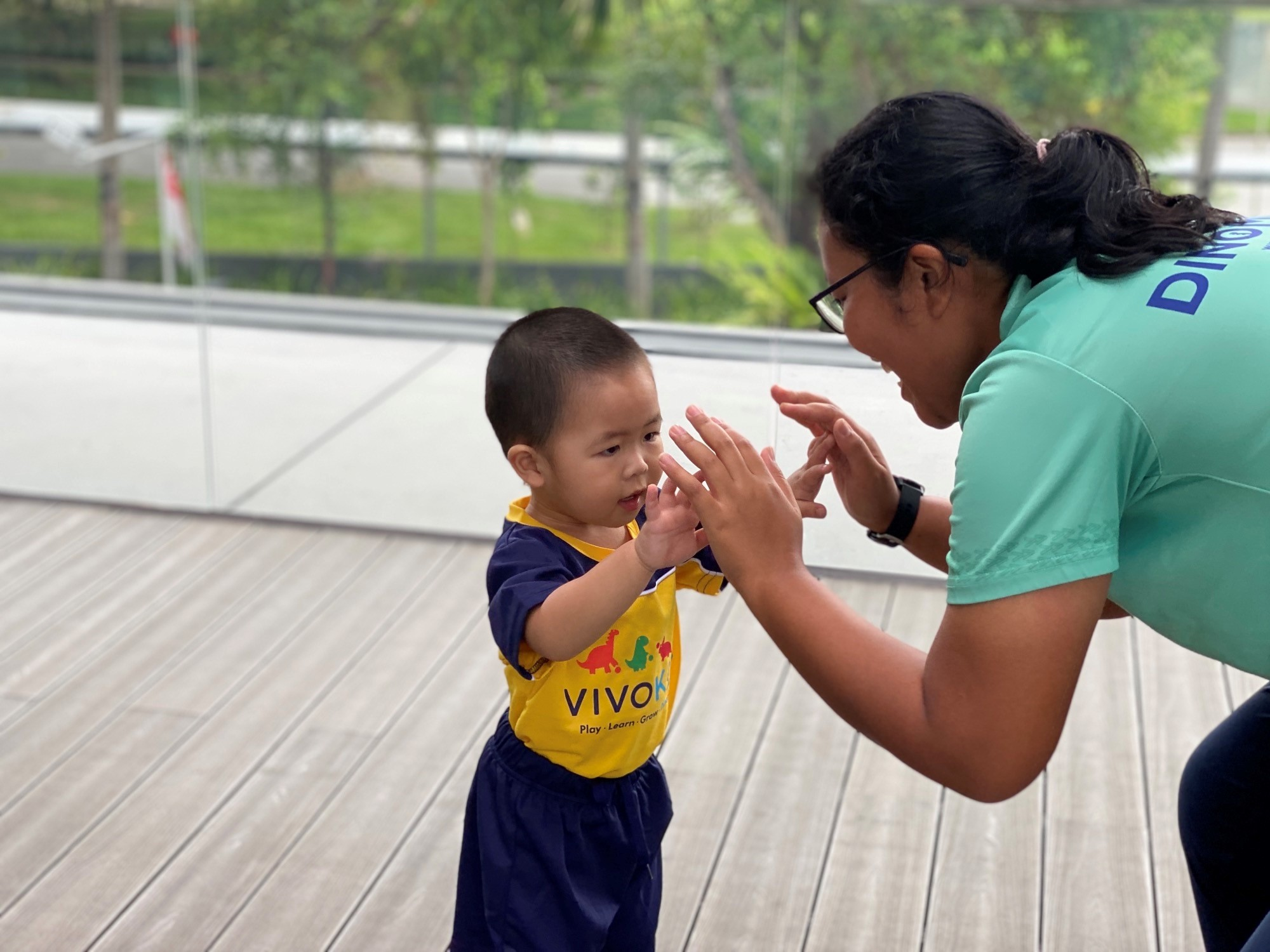Home >
Blog >
Gentle Parenting: What is It and How to Practice It?
Gentle Parenting: What is It and How to Practice It?
 |
Gentle parenting is a parenting style that encourages parents to be more compassionate and understanding with their children.
It has become more prevalent in recent years as parents search for how to raise kinder and more respectful children in a changing world. The phrase was coined in 2013 by British author Sarah Ockwell Smith, who is generally considered the founder because of her gentle parenting book.
Gentle parenting encourages parents to choose words to help their children feel safe and loved. If you're curious to learn more, continue reading to see what gentle parenting is and how you can put it into practice.
What is Gentle Parenting?

|
Gentle parenting is a form of positive parenting because it promotes positive relationships, self-esteem, and emotional well-being. It aims to help children develop into people who can make good decisions for themselves. The focus is on what makes the child happy and comfortable rather than changing them into someone else's ideal image.
Here are three examples of how gentle parenting works with young children:
- You are leaving the house, and your child refuses to put on his/her shoes. Instead of raising their voice, the parent will offer the child choices by asking whether they want to put on shoes on their own or prefer help. That way, children feel that they have some autonomy.
- When your toddler refuses to let go of your mobile phone after playing with it. The gentle parenting approach is to tell the child calmly that it is unsafe for her to hold the mobile phone. At the same time, you will firmly hold the phone until they let go.
- If your 5-year-old has coloured all over their sibling's books. Instead of saying, "You're not nice to your sister!" try ", I don't think your sister will like you to do that. Shall we do something else for her and see how she responds?" The goal is to address the action and not the person.
What is NOT Gentle Parenting?

|
-
Authoritative parents set clear rules and limits for their children and encourage them to be independent, but they also offer unconditional love and support when the kids need it.
- Neglectful parents ignore their children and leave them to fend for themselves. They do not teach them how to make good decisions or have healthy relationships.
- Authoritarian parents are strict and controlling, believing younger children can only be taught by telling them what they need to do and why they must do it.
- Permissive parents let their kids do what they want, but they do not care if their children are happy or if they learn anything from their experiences.Of the four, gentle parenting is often confused with permissive or passive parenting, which allows children to do whatever they want. Gentle parenting does not give children free rein but allows them to learn from their mistakes and develop self-control.Instead, gentle parenting is similar to authoritative parenting because it teaches children how to behave and gives them rules. However, gentle parenting has some critical differences. It does not use threats or punishments to discipline children and instead focuses on helping children learn respectful behaviour through positive reinforcement and modelling appropriate behaviour.
Is Gentle Parenting Really Effective?
 |
Here are three scientifically supported benefits that show how gentle parenting is effective:
- Reduced risk of preadolescence depression: Research shows that children raised in a household that used gentle parenting showed lower rates of depression. That's because gentle parenting encourages children to experience, label, and share their big emotions.
- Improved self-regulation: Another study suggests gentle parenting may increase a child's self-regulating ability so that they can understand their feelings and reactions. Children learn emotional behaviour and self-regulated responses from adults. Gentle parenting with toddlers is about staying calm and warm even when they are misbehaving.
- Stronger bond between parent and child: According to research, the gentle parenting approach builds a secure attachment bond between parent and child, creating curious, self-reliant, and independent children. Stronger relationships help children feel acknowledged and create trust, which leads to less misbehaviour.
What are the Challenges of Gentle Parenting?

|
If you're ready to start trying a gentle parenting approach, you might experience these three challenges. Here's what you can do about it.
1. Breaking bad habits of yelling when you get angry: It's hard to break bad habits ingrained for years, so start with a slight change and build from there. For example, you might try picking one thing your child does that bothers you and then work on that one thing for a few days before moving on to another.
2. Reverting to old patterns. If you recognise that you're too lenient or strict, gentle parenting can be challenging. It can be especially tough for parents used to giving their kids freedom but make sure to see it through.
3. Gentle parenting is not perfect parenting. One challenge is that beginners tend to stress themselves out to get it right. But remember that as long as you set consistent boundaries, 'good enough' parenting is sometimes enough!
How Do You Practice Gentle Parenting?
 |
If you're ready to try gentle parenting, here are five tips to get started:
Tip 1: Practice the RIE parenting method
The RIE (Resources for Infant Educarers) parenting method teaches children to regulate their emotions, needs and behaviour. It was developed by Magda Gerber, who believed that parents should model positive behaviour and allow children to learn from their mistakes. Gentle parenting is based on the same principles but takes it one step further by ensuring children feel loved and secure while learning to self-regulate.
Tip 2: Talk about the action, not the person.
Tip 3: Role modelling works best.
Tip 4: Invite, don't command.
Tip 5: Praise and encourage positive action
Gentle parenting means clear boundaries without demanding your child to do something. For instance, instead of saying, "Don't touch," you can say, "We're just looking when you're in the store." Praise them if they carry out positive behaviour to reinforce firm boundaries.
Adopting Gentle Parenting at Invictus International Preschool

|
|---|
At Invictus International Preschool, our teachers also use techniques from gentle parenting to ensure every child grows up happy and healthy.
Our individualised learning plans strengthen children's empathy, respect and understanding of self and others. We also set clear rules and expectations for children that align with their development milestones and academic standards.
At the same time, our professional teachers listen to the children's needs and communicate sensitively. They practise flexibility and understanding in helping them reach these goals.
Besides, each of our pre-schools offers a ‘family-feel’ community”, which offers a familiar, warm setting that lets children discover their talents naturally. Our young ones will have opportunities to learn something new and explore new subjects confidently.
To find out more about how we practice gentle parenting, book a tour with us today!

